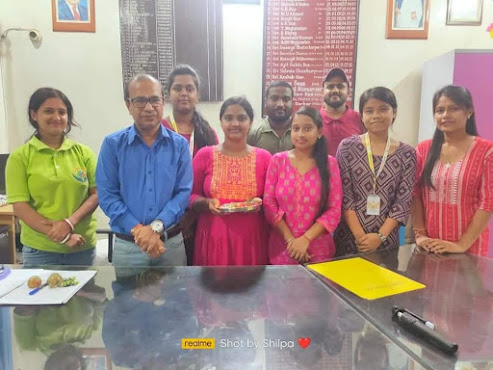Kailashahar Will Remember You
 |
| SDM PRADIP SARKAR WITH SWAPNO CHHOWA VOLUNTEERS |
REPORT: UTTAM SINHA
After decades of fiery extremism, the lush green state of Tripura has finally taken steps towards peace. The verdant forests of Bagama, Baramura, Atharamura, Longtrai, Vangmun, and Saika hills have witnessed much bloodshed and many lifeless bodies. On one Independence Day, a TRTC bus was stopped on the Kanchanpur hills, and passengers were brutally killed in broad daylight by gunfire from automatic weapons. Recently, in the presence of the Chief Minister, members of banned extremist organizations surrendered in Hirachara. This was the very place where nearly twenty TSR jawans were ambushed and brutally killed by insurgents, who looted government weapons. The state has witnessed the rise and fall of countless extremist groups like TNV, ATTF (Tiger Force), ATTF (Tribal Force), NLFT (Biswamohan), NLFT (Nayanbashi), and Sengkrak. Families have watched in horror as their loved ones' bodies lay drenched in blood from these insurgent bullets. Kidnapping became a regular business, targeting merchants, government workers, children, youth, women, and mothers alike.
Government employees who had to travel across hills to serve in tribal areas lived in constant insecurity. Despite seeing the morning sun, they never knew if they’d live to see the evening light. They were forced to pay a portion of their salary as "protection money." Refusal meant facing death at the pull of a trigger.
There have been numerous instances of homes being burned down, people being burned alive, with the Kalyanpur Colony massacre in Khowai being the most horrific. Many were asleep or preparing for bed when the entire village was surrounded, and every house was set ablaze by AK-47-wielding assailants. When Bengalis tried to flee from the sudden fire, they fell one by one under a hail of bullets in the dark. Children, women, young and old were all among the victims, whose names and compensation remain unknown to the state. Another tragedy occurred in the Jogeshwar Nagar Colony of Simna, where nearly twenty-five Bengali families were burned alive in their homes near the Bangladesh border. If anyone escaped the fire, they were shot. In one household, five members were burned alive, and four in another. Livestock perished in the blaze, adding to the horror. The next day, a gruesome scene awaited; the smell of burnt human and animal bodies was suffocating. A baby girl was thrown into the darkness, while her parents were killed in the attack. The following day, a mass cremation was held under tight security, just like in Khowai. The pain of that night remains fresh in the memories of many older Bengalis. The horrific events of that night in Khowai and the memory of the Saraswati Puja massacre have not been forgotten.
The family of tea plantation manager Yogabrata Chakraborty never recovered his body, despite paying a 3.5 million ransom. Rumors suggest he was tortured and killed with powdered glass, although there is no official record. Many who returned after paying ransom shared similar stories.
Those who survived feared police investigations, as they would either face insurgent threats or prolonged police harassment. Bengalis longed for peace but suffered under brutal, inhumane violence. When their tolerance finally broke, they initiated the "Save Bengali Movement" to resist and retaliate. Thus, the All Tripura Bengal Force (ATBF) was born as a Bengali-led militant group. Unconfirmed reports suggest it originated in a village in Kumarghat with political backing but was swiftly dismantled.
These stories are only samples of the history of kidnappings, ransom collections, massacres, attacks on law enforcement, and looting. Though time has healed many wounds, memories of the Kalyanpur genocide in Khowai and Mandai of West Tripura from the '80s/ '90s remain fresh.
In recent times, ethnic violence that began in Jirania spilled over into Kadamtala in the North District. Destruction, killings, and vandalism ensued, and mobile networks were cut off. Tensions spread to Unakoti, and internet services were quickly suspended. Sub-Divisional Magistrate Pradeep Sarkar imposed Section 163 BNSS in Kailashahar subdivision to prevent gatherings, carrying weapons, and provocative actions. His skill and prudence in controlling the situation have earned praise. Today, Kailashahar has returned to its peaceful self, with people resuming their daily lives. The people of Kailashahar and Unakoti district express heartfelt respect for the farsighted and capable Sub-Divisional Magistrate, Pradeep Sarkar. "This ancient city will remember you."


Comments
Post a Comment